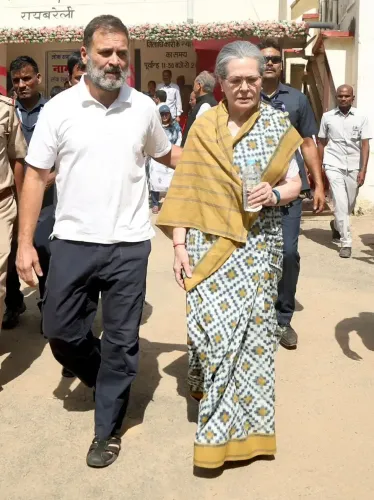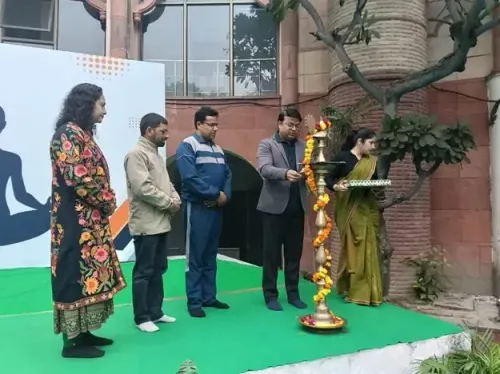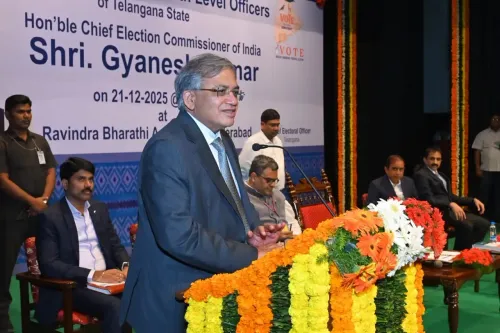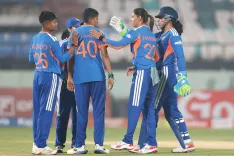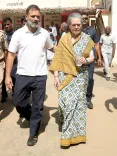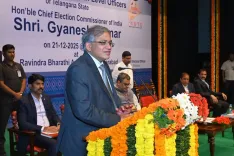Siddaramaiah: BJP's 'Halal Budget' Critique Reflects Malicious Intent
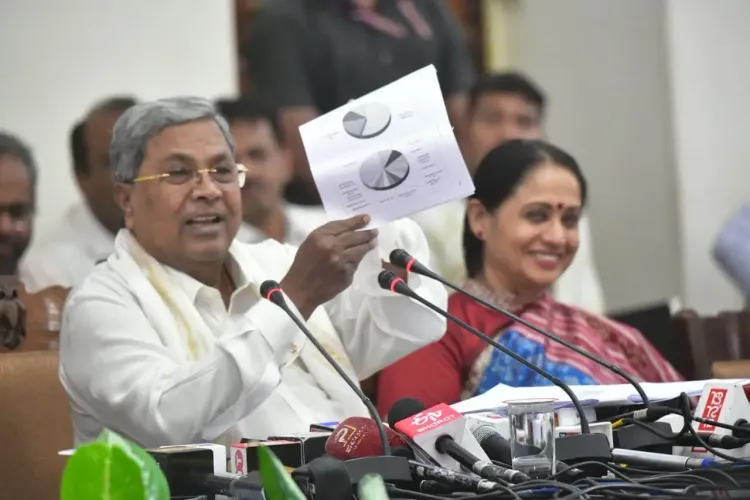
Synopsis
Key Takeaways
- Criticism of the budget as 'Halal' stems from BJP’s malicious mindset.
- Financial assistance to minorities totals Rs 4,000 crore.
- The budget prioritizes social equity and development.
- Fiscal discipline maintained with a deficit of 2.95% of GSDP.
- Significant allocations for women and urban development projects.
Bengaluru, March 7 (NationPress) In a robust rebuttal to the BJP's derogatory label of his budget as a ‘Halal budget’, Karnataka Chief Minister Siddaramaiah asserted that such criticism originates from the BJP’s malicious mindset.
While addressing reporters in Bengaluru on Friday, CM Siddaramaiah condemned the BJP's characterization of the budget, stating it reflects a divisive and malicious mindset.
He highlighted that financial aid to minority groups, including Buddhists, Jains, and Christians, amounts to Rs 4,000 crore. Guarantee schemes are set to provide around Rs 232 crore per constituency, enhancing purchasing power and driving economic growth.
On the topic of reservations in government contracts, Siddaramaiah clarified that minority reservations are determined by literacy rates, not religion.
He questioned why the BJP emphasizes Muslim reservations while neglecting those for SCs, STs, and OBCs. Concerning irrigation projects, he accused the central government of procrastinating on approvals and funding, particularly for initiatives like the Krishna and Bhadra Upper Bank schemes. He criticized BJP MPs for not advocating for Karnataka's interests in Delhi.
The budget allocates Rs 42,000 crore for SCSP-TSP schemes, Rs 4,500 crore for minorities, and Rs 4,300 crore for OBCs. Siddaramaiah questioned whether the BJP-led central and state administrations have ever put the SCP-TSP Act into practice.
He further accused the BJP of lacking the resolve to apply Karnataka’s model on a national scale.
He emphasized that India is a pluralistic nation where equal opportunities must be guaranteed for all, condemning the BJP for undermining constitutional values.
Karnataka’s budget, he stated, reflects foresight, equality, social progress, and financial prudence. The state budget has surged from Rs 13,000 crore in 1994-95 to over Rs 4 lakh crore, illustrating its dedication to inclusive development.
The Karnataka budget for 2025-26 adheres to principles of foresight, equality, social progress, and fiscal responsibility. Siddaramaiah labeled the budget, which exceeds Rs 4 lakh crore for the first time, as a landmark.
The budget size has expanded from Rs 3,71,121 crore last year to Rs 4,09,549 crore this year, marking a Rs 38,166 crore increase and a growth rate of 10.3 percent.
Revenue receipts have risen from Rs 2,63,178 crore last year to Rs 2,92,477 crore this year, reflecting a Rs 29,299 crore increase and a growth rate of 11.1 percent. Revenue expenditure has climbed from Rs 2,90,531 crore in 2024-25 to Rs 3,11,739 crore in 2025-26, an increase of Rs 21,207 crore with a growth rate of 7.3 percent. The state’s borrowing has escalated from Rs 1,05,246 crore to Rs 1,16,000 crore, a 10.2 percent rise. Nevertheless, the fiscal deficit remains within the 3 percent limit established by financial responsibility laws, standing at 2.95 percent of GSDP. The government has successfully reduced the revenue deficit from 0.95 percent last year to 0.63 percent this year, showcasing financial discipline, as pointed out by the CM.
Siddaramaiah criticized opposition leader R. Ashoka’s comments, questioning his grasp of financial responsibility laws.
He noted that while Karnataka’s fiscal deficit is 2.95 percent, the central government’s is 4.61 percent, with 56 percent of its Rs 50 lakh crore budget being funded through borrowing.
He accused the BJP of disseminating misinformation and failing to manage their own finances. The state government has earmarked Rs 52,009 crore for its guarantee schemes, with Rs 51,034 crore allocated for the upcoming year. Specific allocations include Rs 28,608 crore for the Gruha Lakshmi scheme providing Rs 2,000 monthly cash aid for women heads of households, Rs 10,100 crore for the Gruha Jyoti free power initiative, Rs 6,426 crore for the Anna Bhagya rice distribution scheme, Rs 5,300 crore for the Shakti scheme offering free travel for women, and Rs 600 crore for the Yuva Nidhi scheme for young graduates and diploma holders.
In response to the BJP’s criticism regarding the renaming of Central City University after former Prime Minister Manmohan Singh, Siddaramaiah challenged whether Singh’s contributions to the nation should be overlooked.
Addressing concerns about significant projects in the budget, he highlighted an additional Rs 2,000 crore for irrigation, Rs 7,000 crore for Bengaluru, and Rs 54,000 crore for urban development. Capital expenditure has surged by 47.3 percent to Rs 83,200 crore, he noted.
Concerning financial commitments, he dismissed worries that guarantee schemes restrict government flexibility, citing increased honorariums for Asha workers, temple priests, wrestlers, and guest lecturers.
Responding to demands from BJP and JD(S) MLAs for extra funds, he assured that Rs 8,000 crore has been designated for all constituencies and will be increased if required.
In light of Union Minister H.D. Kumaraswamy’s criticisms, Siddaramaiah challenged him to question Prime Minister Narendra Modi, as the central government has borrowed 56 percent of its budget.


